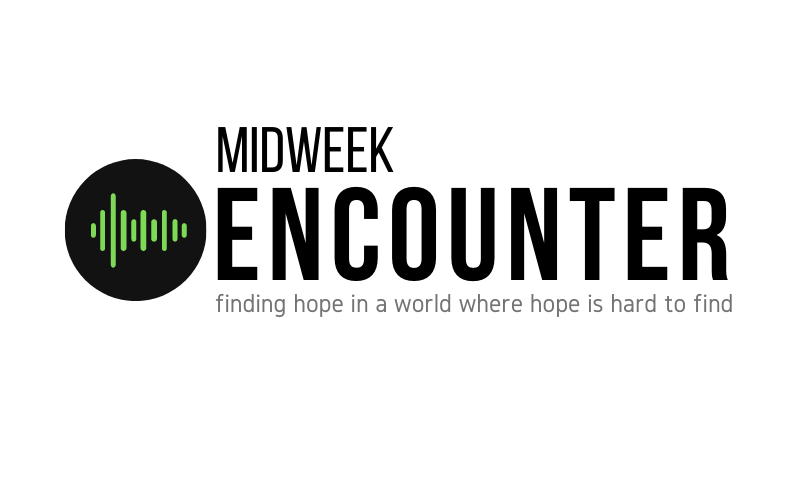



A minister was speaking to the Sunday school about the things money can’t buy. “It can’t buy laughter and it can’t buy love” he told them.
Driving his point home he said, “What would you do if I offered you $1,000 not to love your mother and father?” Stunned silence ensued. Finally a small voice queried, “How much would you give me not to love my big sister?”
Here we are on the Sunday before Easter. It is almost like the calm before the storm. For the uneducated Easter may have the feel of pastel colors, eggs and chocolate rabbits but to those of us who know the real story it is a different feel altogether. What we now refer to as Holy Week was a week of mixed emotions or maybe we should say mixed up emotions. One minute the crowds of people that had followed Jesus around were shouting their support and waving palm branches in the air as He arrived in Jerusalem and a couple of days later many of these same people are filling the air with the words “Crucify Him.”
These last days and weeks of Jesus on this earth prior to His death are filled with teachable moments. He taught His disciples that He was the vine and we are just branches. If we keep connected into the Vine we will bear spiritual fruit with our lives. He taught them that He had chosen them not the other way around. He taught them that the one who serves is the greatest in the Kingdom of heaven.
The book of John is just full of these last moments in the life of Christ. It is almost as though He is rushing to fill the disciple’s heads and hearts with the important stuff. Listen to these words found in John 12:35-36, “My light will shine for you just a little longer. Walk in the light while you can, so the darkness will not overtake you. Those who walk in darkness cannot see where they are going. Put you trust in the light while there is still time: then you will become children of light.”
For the next few minutes I want us to think deeply about love. I would like us to focus on the love that Christ demonstrated toward us. This kind of love will always run the risk of feeling betrayed and even rejected at times.
Paul Miller writes, “Rejection disorients us. We get angry at the person who wrote us off, but wonder what is wrong with us. Often we feel a combination of hurt, anger, and depression. Even worse, betrayal adds broken intimacy and deceit to all the pain and confusion of rejection. It doesn’t just put a single relationship in doubt, but our whole ability to relate, confusing us to the point of insanity.”
We are taking a walk with Jesus Christ this morning. We are walking to the cross.
Jesus knew both betrayal and rejection. He felt it from those closest to Him. Christ loved so much that He risked everything on a relationship with us. It cost Him His life. Today we are going to follow Him around and try to relate to what must have been going on in His head and heart in the days and weeks leading up to His death. It was a death totally rooted in love. It is a death and resurrection that provides all humanity with the ability to awaken to new life.  1 Jesus faced rejection from people He loved
1 Jesus faced rejection from people He loved
The whole story of Christ coming to this earth is the greatest love story we could ever hear or know. It is also a story of adventure and action. Jesus came to this earth and was born into the very group of people God the Father had chosen to be His people on this earth. Jesus was a Jew. Jesus loved the leaders of Israel and longed for closeness with them but they detested Him.
“ 34 “O Jerusalem, Jerusalem, the city that kills the prophets and stones God’s messengers! How often I have wanted to gather your children together as a hen protects her chicks beneath her wings, but you wouldn’t let me.” Luke 13:34
What a beautiful metaphor this is. It is maternal in its expression. Jesus is literally grieving in a sad lament or cry of His soul. When there is danger, little chickens scurry under their mother’s wings. In a fire, hens will be burned alive, while their chicks are safe under their wings. He is expressing a lament or a cry of the soul. He was being rejected.
Have you ever been rejected by someone? Have you ever felt the pain of trying to love yet having that love ignored and despised?
C.S. Lewis: “There is no safe investment. To love at all is to become vulnerable. Love anything and your heart will certainly be wrung and possibly broken. If you want to make sure of keeping it intact, you must give your heart to no one, not even to an animal. Wrap it carefully round with hobbies and little luxuries; avoid all entanglements; lock it up safely in the casket or coffin of your selfishness. But in that casket-safe, dark, motionless, airless space, it will change. It will not be broken; it will become unbreakable, impenetrable, and irredeemable. The alternative to tragedy, or at least to the risk of tragedy, is damnation. The only place outside Heaven where you can be perfectly safe from all the dangers and perturbations of love is Hell."
To love is to suffer. To journey through love is to journey through sadness. In the midst of cheering crowds waving palm branches (the symbol of military victory) He rides on a donkey down the Mount of Olives. In front of Him is the city of Jerusalem and death. He breaks down into open weeping this time. He is not crying for His impending death. Often our sadness can teeter into self-pity and self-absorption, but Jesus’ sadness is other-centered.
There is this amazing verse or phrase in John 12:37, “But despite all the miraculous signs Jesus had done, most of the people still did not believe in him.” (There is a lot of side teaching here especially in verse 41 where it says, “Many people did believe in Him, however, including some of the Jewish leaders. But they wouldn’t admit it for fear the Pharisees would expel them from the synagogue. For they loved human praise more than the praise of God.)
No wonder Luke’s vivid account of Jesus entering in to Jerusalem is filled with emotion and pathos. Israel was looking for a king or a military victor to free them from Roman rule. He comes over the Mount of Olives and is greeted by crowds of people lining the roads waving palm branches, the symbol of military victory. Riding on a donkey down the Mt. of Olives, Jesus sees Jerusalem and look at what happens next.
“ 41 But as he came closer to Jerusalem and saw the city ahead, he began to weep. 42 “How I wish today that you of all people would understand the way to peace. But now it is too late, and peace is hidden from your eyes. 43 Before long your enemies will build ramparts against your walls and encircle you and close in on you from every side. 44 They will crush you into the ground, and your children with you. Your enemies will not leave a single stone in place, because you did not accept your opportunity for salvation.” Luke 19:41-44
And you thought grown men didn’t cry. Let me tell you what you already know. While some men may not cry in public there is nothing like the pain of rejection and many a man has thrown himself the ground or floor somewhere and at some time in his life and wept as though his heart were broken for good.
Rejection is a part of love. Christ felt it. Sometimes you feel it. But let me ask you a deeper and probing question today. Are you rejecting Christ or accepting Him today?
Let’s walk a few steps closer to the cross . . .  2. Jesus faced betrayal from a close friend
2. Jesus faced betrayal from a close friend
The only way to get to close to Jesus for the most part was through His close friends. He was often slipping away from the crowds and the religious leaders who wanted to kill him.
Judas provided the perfect plan. He was a bitter person who was in the process of rejecting Christ and his non-militant ways. He was upset by the waste of money that Martha’s sister Mary had demonstrated by pouring an expensive perfume on the feet of Jesus and he was upset by the sharp rebuke that came from Christ over is peevish and fretting behavior. Judas was the treasure and in the few glimpses we have of him in the Bible he emerges as a quiet passionate leader who loves money.
I think Judas was disgusted by the fact that Jesus was not going to be the conquering king that most of the people in Israel were looking for. No doubt many who followed him were looking for some military action. Jesus was the biggest thing that had happened in hundreds of years of Jewish history.
Judas love for Jesus turns into hate and he sees a chance to pick up a few bucks from those attempting to find and capture Jesus.
Christ prepares the disciple for the shock of Judas betrayal by quoting the Old Testament: “He who shares my bread has lifted up his heel against me.” John 13:18 Judas had eaten, slept and worked side by side with Jesus for three years and the thought of what Judas was about to do made Jesus tense.
“After he had said this, Jesus was troubled in spirit and testified, ‘I tell you the truth, one of you is going to betray me.’” John 13:21 John was sitting next to Jesus when he spoke this and he saw the fact that He was agitated and restless. He is hurting at not only rejection from the masses but now betrayal from a close friend and follower.
Jesus leaves us an example of feeling great sadness but He doesn’t allow it to spread to anger. There is not bitterness or self-pity. What Christ is demonstrating here is something we should wrap our heads and souls around. Christ was bound to His Father. He was on a mission and that mission drives Him and His response to rejection and betrayal.
When we find ourselves in a spot of betrayal or rejection what are we to do if we want to be like Jesus? Outwardly we are to love. Inwardly we will feel sadness. Anger can be a demand for immediate justice, while sadness makes no demands on the other person to be different. Sadness is a pure response to evil.
Don’t you ever get hungry for an experience with Christ that is transforming? Something worth dying for? Do you ever get sick of our modern day brand of Christianity? It truly has been reduced for many people to some form of fire insurance and yet the Bible cries out to those who read it pages for us to passionate be like Jesus. We are to live and love like Him.
In The Cost of Discipleship Dietrich Bonhoeffer wrote:
“The cross is laid on every Christian. As we embark upon discipleship we surrender ourselves to Christ in union with his death–we give over our lives to death. The cross is not the terrible end to an otherwise god-fearing and happy life, but it meets us at the beginning of our communion with Christ. When Christ calls a man, he bids him come and die.”
Salvation is free, ... but discipleship will cost you your life.
— Dietrich Bonheoffer  3. Jesus faced death: The ultimate price of love
3. Jesus faced death: The ultimate price of love
Six months before His death, Jesus describes His anxiety: “But I have a baptism to undergo, and how distressed I am until it is completed.” Luke 12:50
He didn’t run. He didn’t try to hide. He faced His crucifixion with an acceptance of it being the Father’s will. Through death comes resurrection. With no death there is no resurrection. Followers of Christ are not trapped in a cycle of despair; we are on a journey of hope. Love will overcome evil but it may be with some rejections, betrayals and even crucifixions along the way.
Let us take a few last steps with Christ on His walk to the cross. We are entering a beautiful garden where He is going to pray. His disciples as he called them couldn’t even stay awake to pray with Him so they went to sleep. It is in these lonely moments that Christ prays and ask His Father to let what is about to happen be stopped. He is struggling with his humanity.
39 Then, accompanied by the disciples, Jesus left the upstairs room and went as usual to the Mount of Olives. 40 There he told them, “Pray that you will not give in to temptation.”
41 He walked away, about a stone’s throw, and knelt down and prayed, 42 “Father, if you are willing, please take this cup of suffering away from me. Yet I want your will to be done, not mine.” 43 Then an angel from heaven appeared and strengthened him. 44 He prayed more fervently, and he was in such agony of spirit that his sweat fell to the ground like great drops of blood.” Luke 22:39-44
Jesus loved through rejection, betrayal and now the prospect of death.
Isaiah 53:6-7 “We all, like sheep have gone astray, each of us has turned to his own way; and the Lord has laid on him the iniquity of us all. He was oppressed and afflicted, yet he did not open his mouth; he was led like a lamb to the slaughter, and as a sheep before her shearers is silent, so he did not open his mouth.”
Eugene Peterson in A Long Obedience in the Same Direction writes, “It is not difficult in our world to get a person interested in the message of the Gospel; it is terrifically difficult to sustain the interest. Millions of people in our culture make decisions for Christ, but there is a dreadful attrition rate. Many claim to have been born again, but the evidence for mature Christian discipleship is slim. In our kind of culture anything, even news about God, can be sold if it is packaged freshly; but when it loses its novelty, it goes on the garbage heap. There is a great market for religious experience in our world; there is little enthusiasm for the patient acquisition of virtue, little inclination to sign up for a long apprenticeship in what earlier Christians called holiness.” A Long Obedience in the Same Direction, Eugene Peterson
Taken from “Jesus in Blue Jeans” by Laurie Beth Jones.
“In this country, it is not only improper—it is technically illegal to be served with a dirty plate. Salad bars post signs indicating that the health department requires that each time you step up to the buffet, you must do so with a clean plate.
Yet every day many of us step up to God’s banquet with a dirty plate, and then wonder why we aren’t served. Jesus, too, insists on a clean plate for everyone.
Jesus could not have motivated his team if he had not given each of them a clean plate. Former prostitute? No problem! You will become my example of precious, holy love. Former coward? No problem! You will become a legendary leader. Former skeptic? No problem! You, Paul, will go on to declare the Gospel in new and exciting ways. No more lingering germs or stains. Clean plate. Clean plate. Clean plate.
The danger in having the grunge of resentment on your plate is the poison that can come from it. Are there some unwashed portions---even on the underside? Are we harboring grunge-filled resentments or clumps of baked-on anger as we continually ask for second helpings? Have we forgiven ourselves?
It finally occurred to me that the only one hurt by the grunge on my plate is the person who eats from my plate…myself. If I hold on to it, thinking that the other person is being punished, thinking that I’m being noble, thinking that I have the right too, thinking that I cannot live without, I am wrong.
That’s why Jesus said we had to get rid of it—not only so the object of our anger could be set free, but more importantly, so we can.
Every one of the people Jesus worked with—those who walked forward—was given a new, bright, robe of righteousness to wear and very clean feet. No left over sins, unwashed resentment, or half-baked disappointments, lingered on the plates that Jesus handed out.
Jesus said, “If I do not wash you, you have no part in me.” (John 13:8). Jesus gives cleans plates.
What is this love that is represented by Christ? Everything He did and continues to do is about loving you and me. He does it because He created us and longs for us to be in community and fellowship with Him.
An Eight year old wrote about love and true love. “Love is when Daddy reads me a bedtime story. True love is when he doesn’t skip any of the pages.”
Today we are calling you to reflection. We are calling you to reflect on your relationships with others. I am asking you to reflect on your relationship with Christ. We are entering into what Christians have called Holy Week. What are you going to do differently this week? How are you living out your faith and how are you at doing at loving?
Jesus demonstrates a love that bleeds. That’s big. Let us reflect as Carolyn sings and leads us in the exercise of surveying the cross.